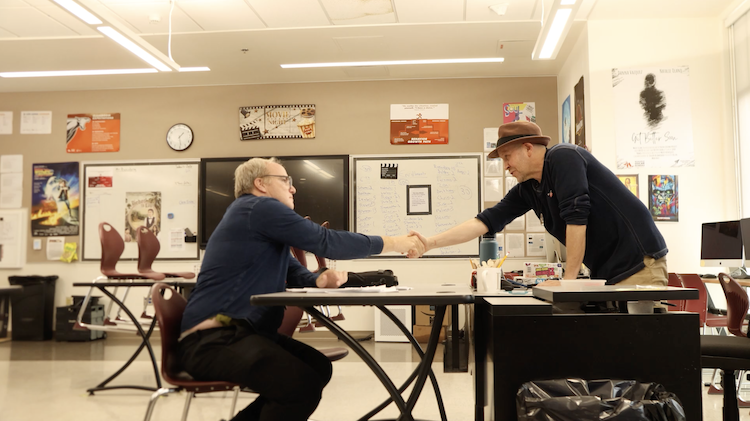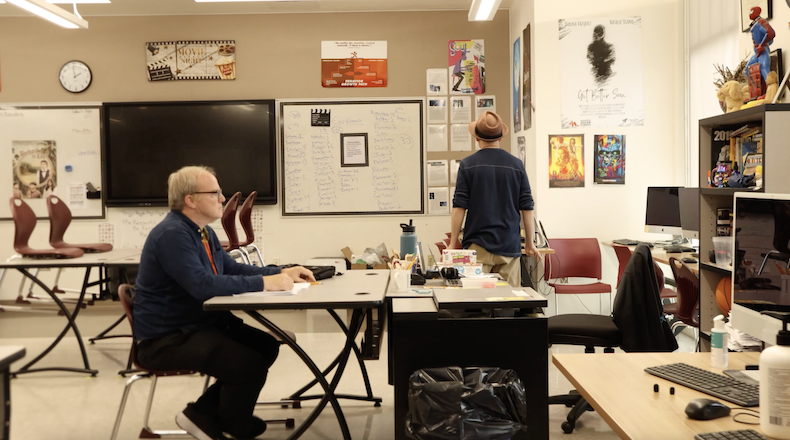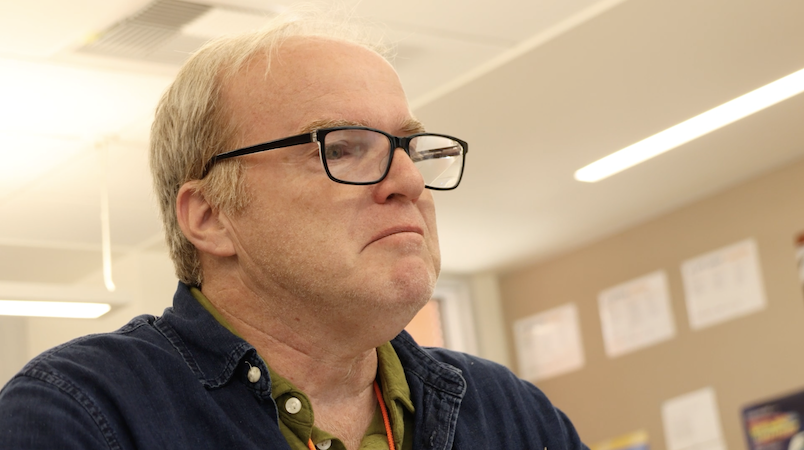Rethinking Teaching


Modern society tends to confine learning to classrooms, but people are constantly learning and adopting new ways of doing things - whether or not they are in a formal setting. We can learn implicitly, absorbing information and methods through osmosis, or we can learn explicitly by actively seeking information to achieve a specific goal. Teachers, while being the disseminators of knowledge, are also the people in our society who must continually learn themselves. They must keep up with new curriculum requirements, discoveries in their field, and evolving teaching methods. Some teachers readily embrace new approaches. Others either don't need to or choose not to adopt what is new and potentially better. The short film, "Professional Development," explores the tension between these two different types of teachers.
The 9-minute short, directed by Armin Siljkovic and starring Dave Rosenberg and Jim Todd, follows a conversation between Joseph and Donald, teachers who differ in both age and attitude. The film begins with the familiar "old pessimist" versus "young optimist" dynamic. Donald is disgruntled with what he perceives as the daily slog of modern teaching as he counts down to retirement. Joseph, by contrast, looks forward to work each day and finds joy in his profession. The film consists of a single scene where the two discuss teaching, prompted by news of a school shooting and Donald's desire to vent and "hide out" from students.

As a character-driven piece, the filmmaking reflects this focus. After establishing the school setting, the filmmakers allow the narrative to unfold naturally through conversation and story beats. The film resembles a theater production in its structure and pacing. The camera primarily observes the two men's conversation, moving in closer only when emphasis is needed. The setting is a K-12 classroom clearly arranged for group activities rather than traditional lecture-style instruction.
The film addresses the range of challenges facing teachers in the United States today. Teaching is undeniably difficult due to various factors: gun violence, behavioral problems, administrative burdens, and parental expectations. However, rather than dwelling on these challenges, the film explores how teachers can adapt their teaching approaches to better engage modern students. Donald represents traditional instructional methods, which Joseph compares to factory assembly lines. Joseph champions more contemporary approaches like project-based learning, which the film presents as more effective for engaging today's students. To convince Donald and offer hope, Joseph shares his own transformation from being a dissatisfied teacher, revealing that his current enthusiasm for teaching didn't come automatically.

The heart of "Professional Development" lies in Donald's evolution throughout the story. He progresses from misery to rediscovering what once made teaching fulfilling and inspiring for him. Through their conversation, Joseph helps Donald see how he might reconnect with the aspects of teaching that inspire many educators. Most viewers can relate to losing passion for something they once loved. The film captures this feeling while emphasizing that such passion can be rekindled.
Sometimes, regaining fulfillment in teaching—or any profession—simply requires some training, learning, and a fresh perspective to make it rewarding and effective once again.